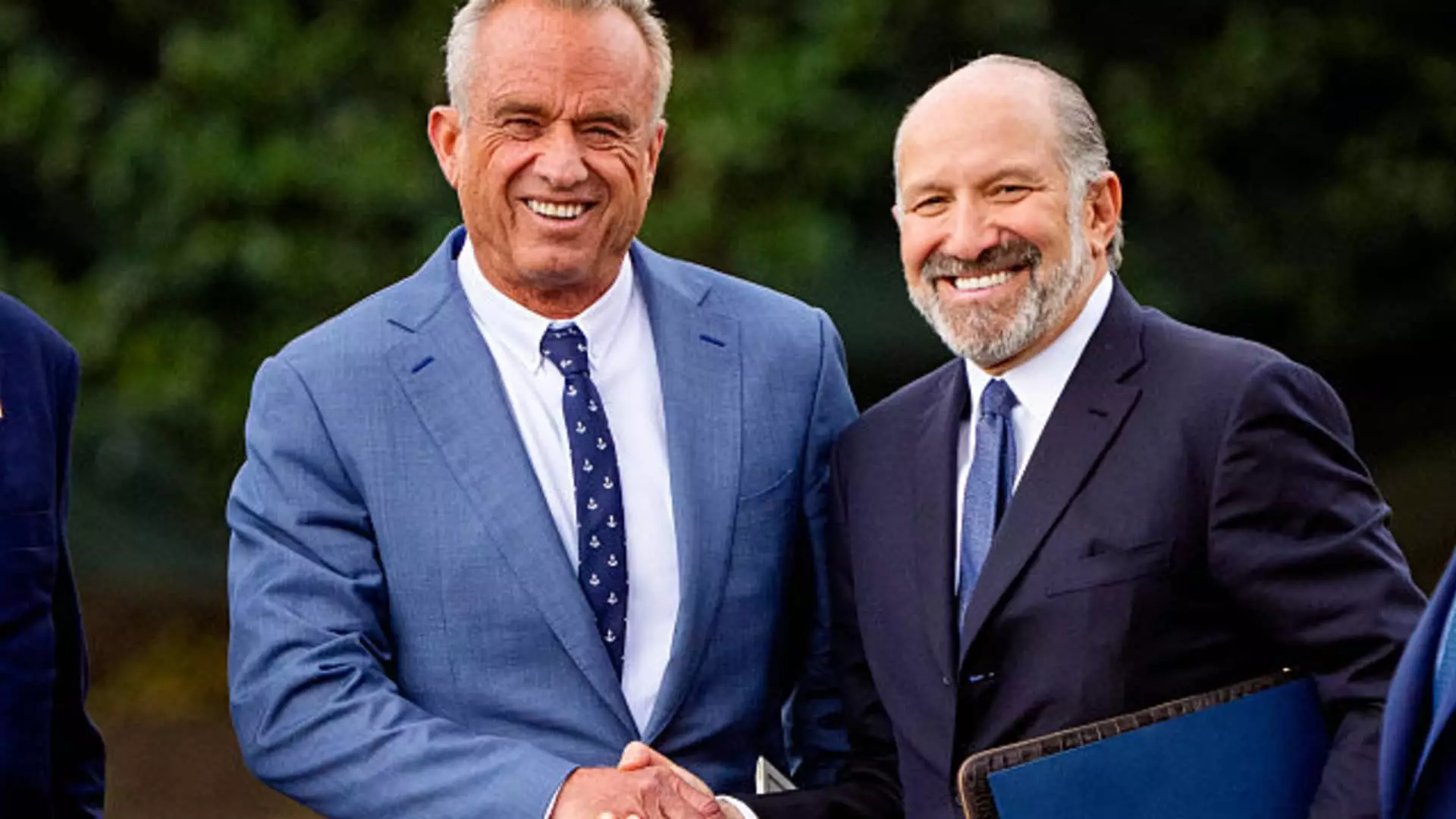The decision to appoint Robert F. Kennedy Jr. as the Secretary of Health and Human Services (HHS) embodies a troubling trend in U.S. politics, where credentials seem less relevant than the charisma of the candidate. Kennedy, known for his vehement anti-vaccine stance, stands in stark contrast to the very mission of HHS—to protect and promote the health of Americans. By allowing someone who dismisses scientific consensus to hold such a critical position, we risk not just health outcomes but the fabric of rational discourse in public policy.
Current circumstances highlight the absurdity of appointing an individual who has openly critiqued vaccination, calling into question the efficacy of established public health protocols. Even in a landscape rife with misinformation fed by social media, appointing a leader that embodies these flawed beliefs encourages a dangerous narrative that could endanger the lives of countless Americans, especially children.
A Crisis of Trust in Public Health
The resignation of Peter Marks, head of the FDA’s biologics division, signals a discontent that goes beyond personal disagreements. It reflects a broader crisis of trust within the institutions designed to safeguard the public health. Marks’s departure was not merely a symbol of dissent; it exposes the fear among public health officials that they may be undermined or silenced under Kennedy’s administration.
His skepticism about widely accepted vaccines suggests a willingness to prioritize personal ideology over scientific integrity. This erosion of trust can destabilize the core message of public health campaigns, ultimately dissuading citizens from availing themselves of vaccinations that prevent the spread of diseases like measles or mumps.
With past examples of vaccine-resistant outbreaks still fresh in the public mind, one must question why an individual openly questioning science could ever be entrusted with the decisions affecting public health protocols—a realm where the stakes are not just theoretical, but profoundly tangible.
Financial Market Reflections
The immediate financial repercussions following Marks’s resignation cannot be overlooked. Publicly traded biotech companies like Moderna and Novavax experienced significant sell-offs, reflecting investors’ fears about the future of vaccine production in the U.S. amid a climate that increasingly embraces skepticism.
These fluctuations reveal that the vaccine industry could be jeopardized not just by misguided leadership but also by policies that might discourage scientific innovation and development. The health implications are dire; we could witness a retreat from groundbreaking advancements simply because the helm of HHS is manned by an individual dismissive of essential vaccine research.
The investors’ reactions should serve as a wake-up call. When money speaks louder than policy, one has to wonder what kind of society we will foster if leaders like Kennedy devalue the biological sciences in favor of unsubstantiated claims and conspiracy theories.
The Cost of Ignoring Scientific Evidence
Every day, we hear calls for a return to “freedom of choice” regarding vaccinations. But this narrative masks a deeper, more troubling reality—the choice not to vaccinate can lead to irreversible tragedies, as evidenced by recent preventable deaths linked to measles epidemics.
The rhetoric around vaccines leading to conditions such as autism continues to thrive, despite mountains of evidence to the contrary. Advocating for a return to such debunked theories under the guise of personal freedom tragically undermines the collective responsibility required to maintain public health standards. Those touting these claims fail to recognize the severe implications—how many fatalities are acceptable in the name of personal autonomy?
Such misguidance ought to activate public outrage and demand consequences for those perpetuating the myth of vaccine dangers. Kennedy’s perspective threatens to disenfranchise the countless lives that have benefited from vaccines through hard-won scientific advances.
Public Health at a Crossroads
The mere possibility of having someone like Robert F. Kennedy Jr. at the helm of HHS entails a monumental risk; it signifies a broader cultural shift that threatens public health progress. By prioritizing ideology over evidence-based practices, we put future generations at stake.
The scientific community needs to unite in lamenting this moment in time, urging the administration to reconsider its decisions before we sacrifice lives on the altar of erroneous beliefs. In regardless of the political affiliations one may hold, let’s not forget that the health of our nation is not a bargaining chip; it is a sacred trust that must be honored above all else.

